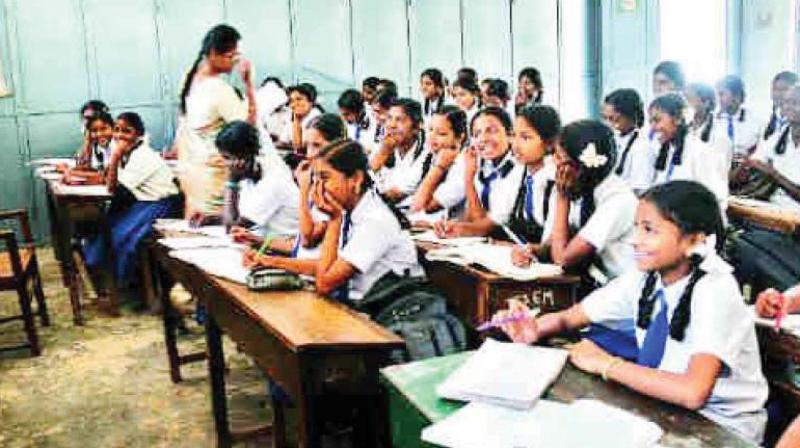Kids need to use vacation time more productively

Summer vacations are now on. Millions of children and young adults, who are enrolled in schools, colleges and universities, will have more time to relax, spend time with their families, socialise in a larger circle, sleep and wake up late, laze around, enjoy leisure activities, enjoy sports activities. For some, it will be an opportunity to go on trips to other cities or even other countries.
All of the above is very important for individual growth and for having a more balanced personality. Young people should have these opportunities to experience downtime. School and universities put significant academic and other pressures on children. The regimentation of everyday schooling is in and of itself taxing enough. There is a need for more relaxed and less structured time for young people — summer vacations provide that opportunity.
Some university students will have to do summer internships. This might be needed to acquire some experience and/or to explore professions they might later want to pursue. But, if an internship programme is not structured well, it will be a waste of time. There is no need to spend a month photocopying papers or fetching coffee for the bosses. In such cases, spending some time lazing about is better than being an intern performing work that is not stimulating.
This is true of summer camps and summer schools as well, but in a different way. If a summer school is focused solely on academics — guaranteeing revision of the entire course or completion of the course ahead of the rest of the class — this too is a waste of time. Again, being at home might be a better alternative. But if the summer school allows children to socialise, play, learn new skills (music, dance, art) especially ones not taught in regular curricula, then it might be worth attending.
Relaxation does not mean having no goals or plans for the summer. There should be some thinking that goes into designing activities for children during vacations. There should definitely be some time allocated for homework, or schoolwork if no homework has been given to them, in order to solidify their understanding of and reflect on what they have learnt in the past academic year. But there needs to be a component of this focused on looking forward as well, so children get some idea of what is to come post-summer.
More importantly, there should be plenty of looking sideways. Children should be encouraged to read around their curriculum. They should be encouraged to think of applications and examples of what they might have studied. These processes will enrich and deepen their understanding of what they have studied and what they will be studying. It will also allow them to break free from a reliance on rote learning.
Most importantly, children should be given plenty of time and encouragement to read anything and everything children and young adults like to read. They should read all sorts of novels, especially some of the classics. They should read history; there are plenty of history books that are well written and not "boring". Children’s literature is now much more accessible than ever before. But the level of reading should be varied. Children should be challenged, based on their interests, to attempt slightly advanced material as well, though it should not be so advanced as to discourage curiosity.
Autobiographies were a personal favourite. To read about people I admired, to see them in action, to gain access to their thought process and to be acquainted with the challenges they encountered and how they faced them was very helpful to me. It also provided a window into the thinking of these people. Whether they were philosophers, scientists or artists, reading about their lives, struggles, failures and achievements provided me with a very strong sense of community.
Biography, as a genre, still resonates with me. But it is not the poison of choice for all. Some of the reading should be general, but a large chunk should be in the area that the child is interested in. A friend liked reading about wars. Another was only interested in history. Another focused on science. Summer is an excellent time to explore and develop these possibilities. Three of four decades ago, there were few bookshops and no Internet and/or digital resources. But there were libraries we had access to. In my case, other than our school library, I had access to the British Council’s library and a few others. Though books have become a lot more expensive now and library access has become harder, reading material is more readily available via the Internet. This material needs some curating and selection, but easier access can have larger benefits for young people: they can read more widely.
Other forms of entertainment have increased as well, and this has increased possibilities for distraction too. Television or Net surfing can have negative consequences. But this is where some structure and plans can help. Children should have time to play — even to goof off — but there should be time for interesting activities that develop their potential as well.
Summer reading can help in acquiring language proficiency too. What better time than the summer to focus on English reading, speaking and writing skills or even learning a foreign language? Again, with a bit of structure, developing a regular habit of reading, listening, speaking and writing in a particular language can change proficiency levels within a couple of months.
Summer vacation is a beautiful concept. It can be a time for rejuvenation and growth. But it requires some structure and planning. I wish the millions of children and young adults who are on vacation a very happy and productive summer.
By arrangement with Dawn

